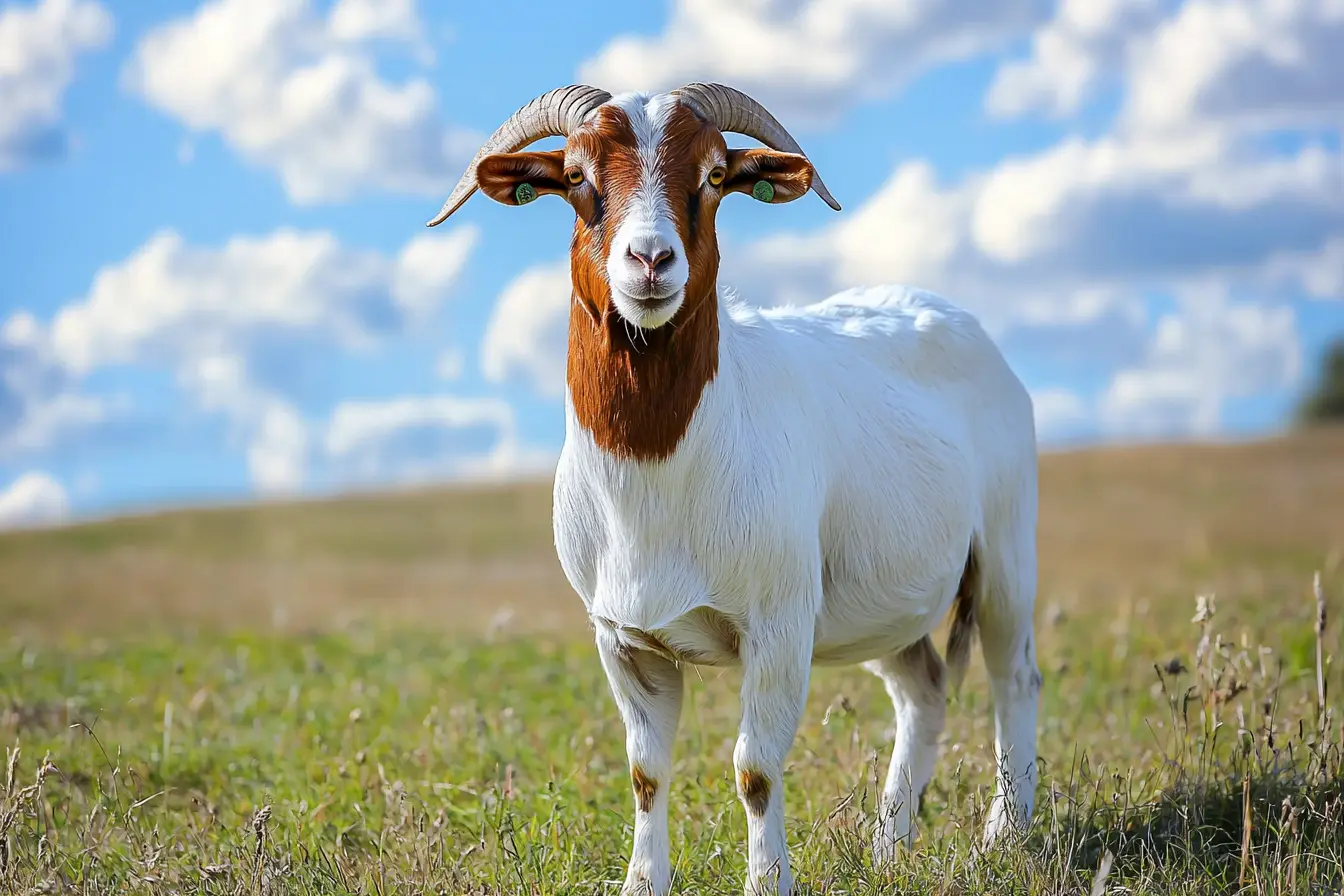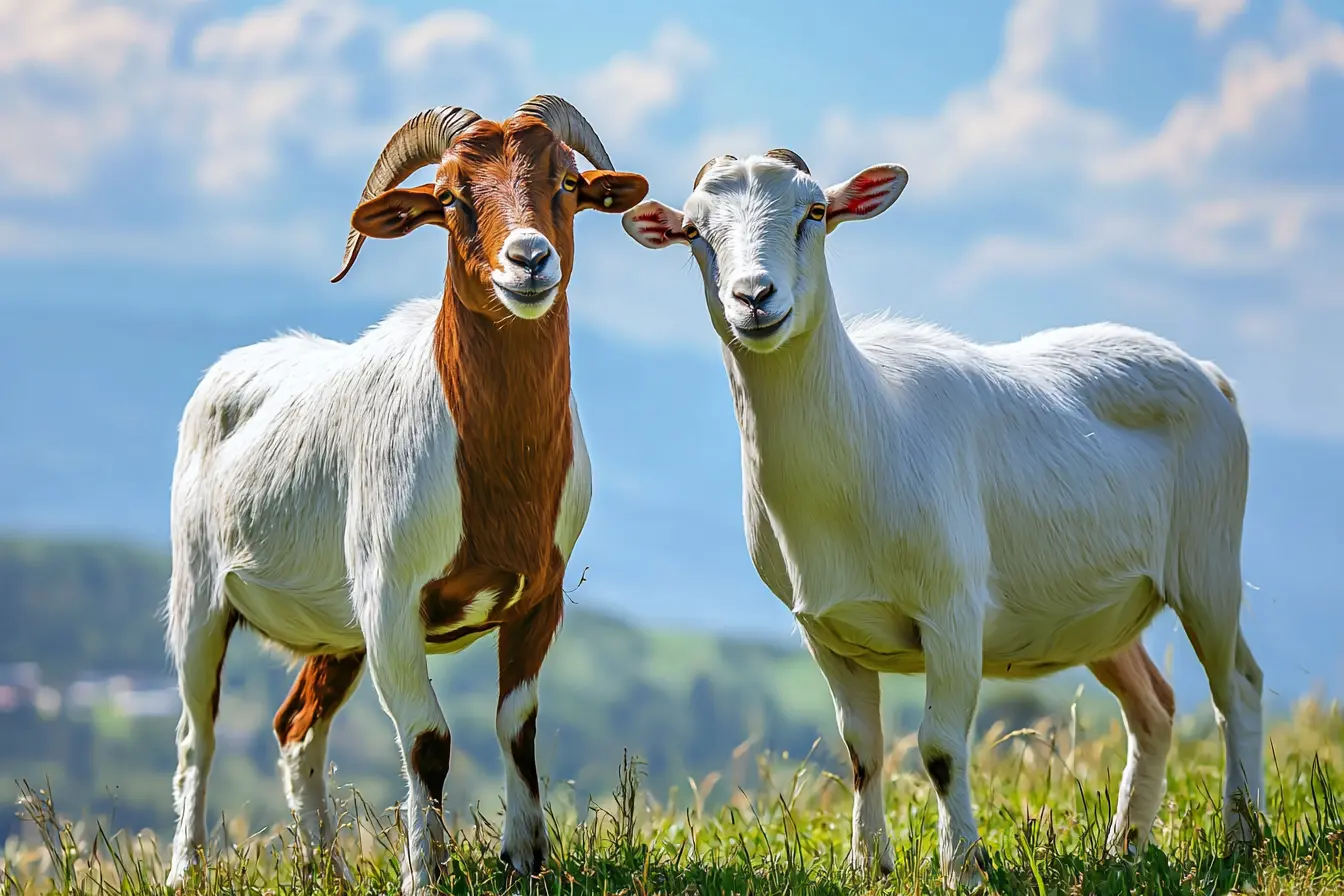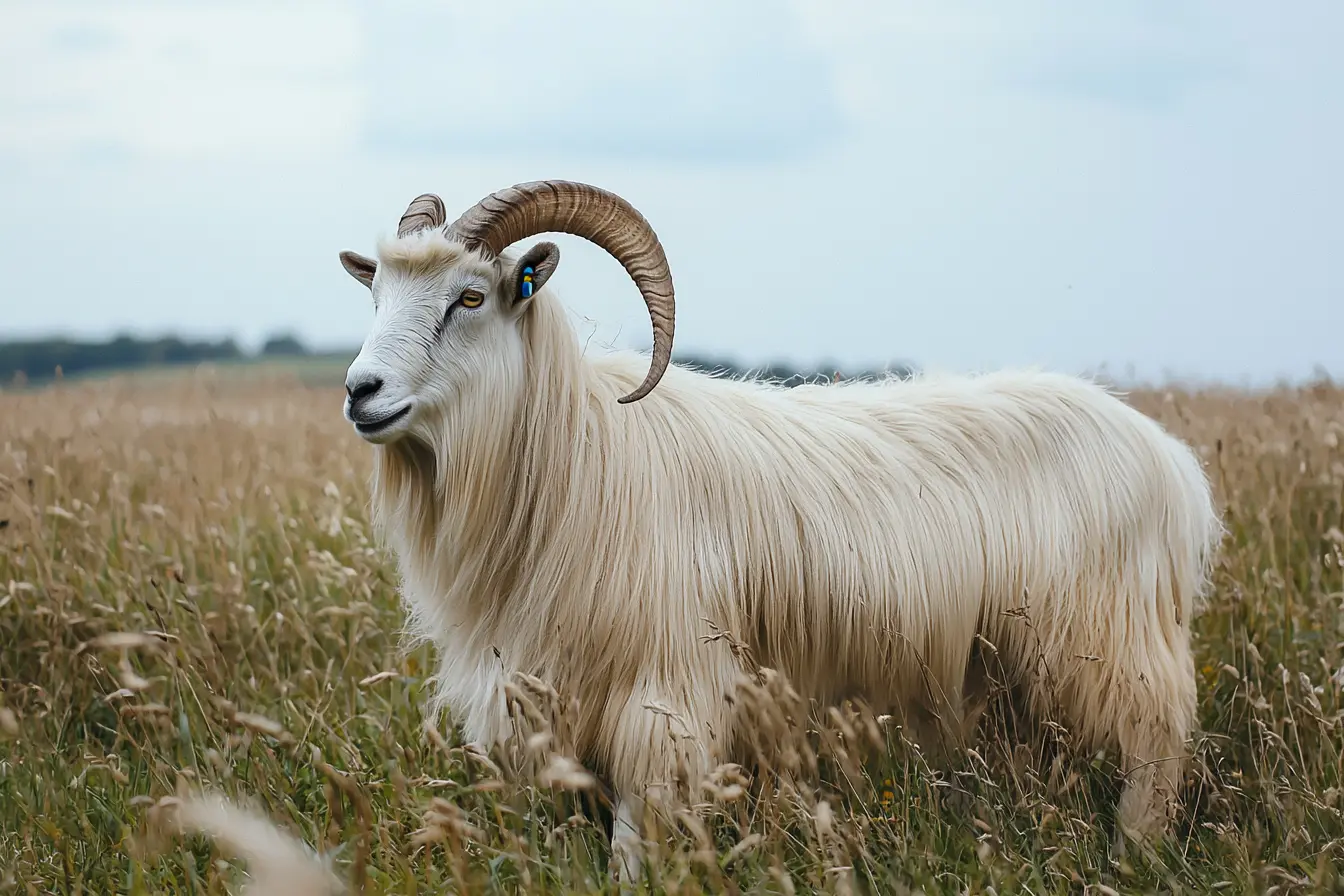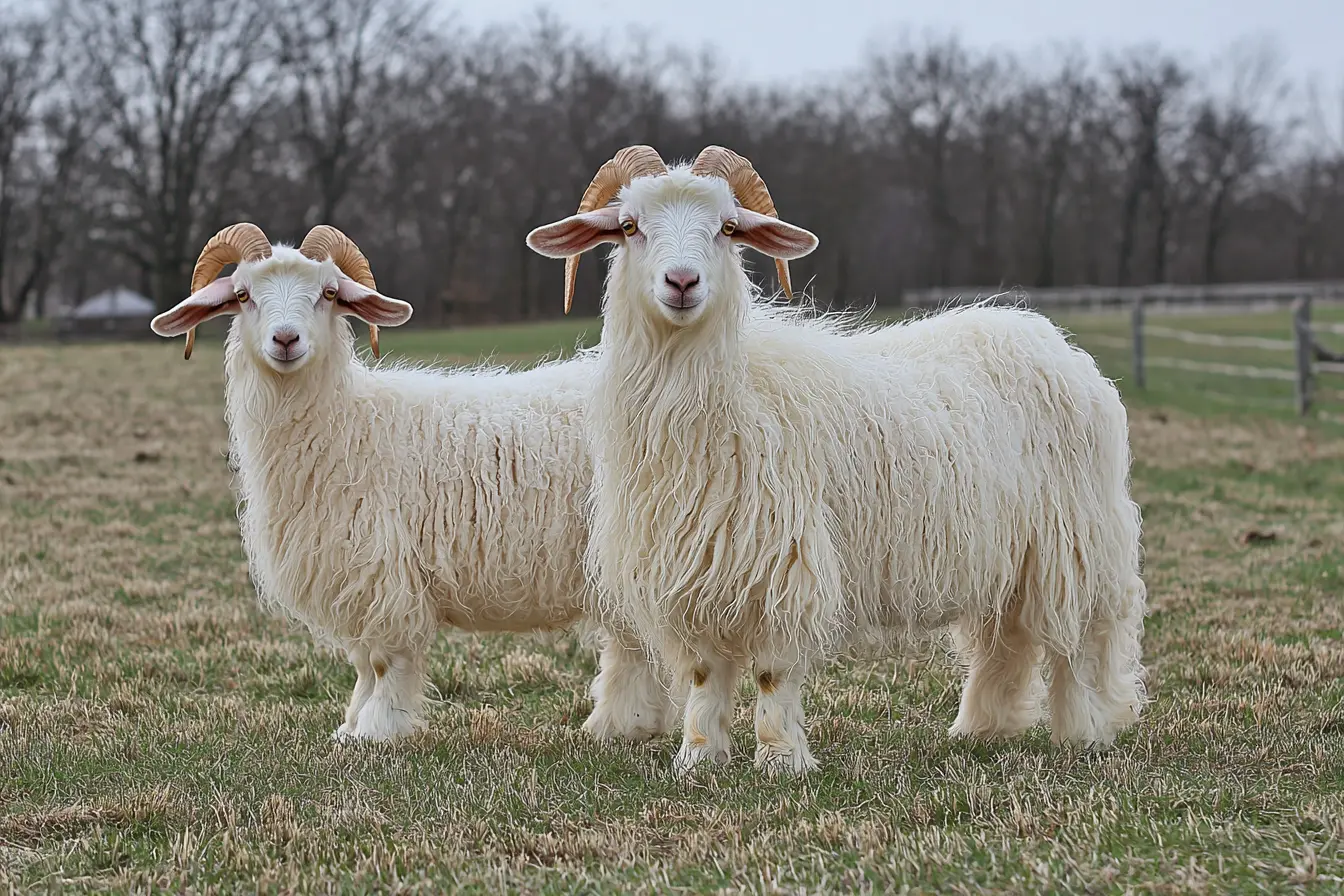
A Complete Guide to Caring for Boer Goats
Boer goats are one of the most popular meat goat breeds in the world, known for their fast growth rates, excellent carcass quality, and hardy nature. Originally from South Africa, Boer goats have become a popular choice among farmers and smallholders in the UK for their adaptability and productivity.
If you’re considering keeping Boer goats, this guide will provide you with everything you need to know about caring for this breed, including housing, feeding, health care, and breeding.
A Brief History of Boer Goats
The Boer goat breed was developed in South Africa in the early 1900s by crossbreeding local African goats with European breeds. The aim was to create a hardy meat goat that could thrive in tough conditions and produce high-quality meat. The word "Boer" means "farmer" in Dutch, reflecting the breed's agricultural roots.
Boer goats are now widely kept across the world for meat production and are valued for their fast growth rates, high fertility, and resistance to diseases.
Key Characteristics of Boer Goats
Boer goats have several distinctive traits that make them well-suited for meat production and farming.
- Size: Boer goats are large, with mature males (bucks) weighing between 110-135kg and females (does) weighing between 90-100kg.
- Coat: White body with a distinctive red or brown head and ears. Some Boers may have patches or spots.
- Ears: Long, pendulous ears that hang down on either side of the head.
- Temperament: Calm, friendly, and easy to handle, making them suitable for beginners.
- Meat Quality: Boers produce lean, tender meat with an excellent flavour, making them highly sought after in the meat industry.
- Adaptability: They are hardy animals that can thrive in various climates and farming systems.
Housing for Boer Goats
Providing proper housing is essential to keep your Boer goats comfortable, healthy, and protected from the elements.
Shelter Requirements
- Size: Ensure the shelter is spacious enough to accommodate your goats comfortably. A minimum of 1.5-2 square metres per goat is recommended.
- Ventilation: The shelter should be well-ventilated to prevent respiratory issues but draught-free to keep the goats warm in colder weather.
- Bedding: Use straw or wood shavings as bedding and replace it regularly to maintain cleanliness.
Fencing
- Secure Fencing: Boer goats are strong and curious, so secure fencing is essential. Use fencing that is at least 1.2 metres high and strong enough to withstand pushing or rubbing.
- Grazing Areas: Provide access to a secure grazing area where your goats can browse for shrubs, weeds, and grasses. Rotating pastures will help maintain healthy grazing areas and reduce parasite risks.
Feeding Boer Goats
Boer goats require a balanced diet to ensure healthy growth and good meat production.
Diet
- Hay and Forage: The majority of a Boer goat’s diet should consist of good-quality hay or forage. This provides essential fibre to keep their digestive system healthy.
- Concentrates: Supplement their diet with goat-specific concentrates, especially for growing kids, pregnant does, and lactating does. Concentrates provide additional energy and protein.
- Fresh Vegetables and Fruits: You can offer fresh vegetables and fruits as treats, but avoid toxic plants such as potatoes, rhubarb, and avocado.
Water
Ensure your goats have constant access to fresh, clean water. Water intake is particularly important for lactating does and during hot weather.
Mineral Supplements
- Provide a mineral block or loose minerals specifically formulated for goats. Boer goats need essential minerals like calcium, phosphorus, and selenium to maintain health and productivity.
Breeding Boer Goats
Boer goats are known for their high fertility rates and strong mothering instincts, making them a popular choice for breeding.
Breeding Tips
- Age to Breed: Does can be bred from around 8-12 months of age once they have reached 60-70% of their adult weight.
- Gestation Period: The gestation period for goats is approximately 150 days (5 months).
- Kidding: Provide a clean, warm kidding area for the doe to give birth. Boer does are attentive mothers and typically produce 1-3 kids per litter.
Weaning
- Kids can be weaned at around 12-16 weeks of age. Ensure they have access to solid food and clean water to support their growth.
Health Care for Boer Goats
Keeping your Boer goats healthy is essential for their wellbeing and productivity. Regular health checks, vaccinations, and parasite control are all part of good goat management.
Vaccinations
Work with your vet to establish a vaccination schedule. Core vaccinations typically include:
- Clostridial diseases (e.g., tetanus, enterotoxaemia)
- Pasteurellosis
Deworming
Boer goats are susceptible to internal parasites, so regular deworming is necessary. Use faecal egg counts to determine the parasite burden and avoid overusing dewormers to prevent resistance.
Hoof Care
- Trimming: Boer goats’ hooves need regular trimming to prevent overgrowth and lameness. Check their hooves every 4-6 weeks.
- Foot Rot Prevention: Keep their shelter and grazing areas dry to reduce the risk of foot rot.
Common Health Issues
- Coccidiosis: A common issue in kids that causes diarrhoea and weight loss. Treat with appropriate medication if symptoms occur.
- Mastitis: A bacterial infection of the udder that can affect milk production. Maintain good hygiene to reduce the risk.
- Lice and Mites: Regularly check your goats for external parasites and treat them with appropriate medications if necessary.
Behaviour and Handling
Boer goats are known for their calm and friendly temperament, making them easy to handle and a great choice for new owners.
- Calm Approach: Approach your goats calmly to avoid startling them. They are generally docile and enjoy human interaction.
- Positive Reinforcement: Use treats to build trust and encourage cooperation during handling.
- Training: Goats are intelligent animals and can be trained to follow basic commands. Regular handling from a young age will make them easier to manage.
Why Choose Boer Goats?
There are several reasons why Boer goats are a popular choice for both smallholders and commercial farmers:
- High-Quality Meat: Boer goats produce lean, tender meat with excellent flavour, making them highly sought after in the meat industry.
- Fast Growth Rates: Boers grow quickly and efficiently, making them ideal for meat production.
- Hardy and Adaptable: They can thrive in various climates and farming systems.
- High Fertility: Boer goats are known for their high fertility rates and strong mothering instincts, making them ideal for breeding.
Final Thoughts
Boer goats are an excellent choice for new goat owners who are interested in meat production or simply want a hardy, friendly breed to keep. Their fast growth rates, high-quality meat, and adaptable nature make them a rewarding addition to any smallholding or farm.
By providing proper housing, a balanced diet, and regular health care, you can ensure your Boer goats thrive and remain healthy. Always work closely with your vet to establish a health management plan and enjoy the experience of raising this productive and resilient breed.
Vets near you
Speciality vets
- Aquatics vet specialists
- Birds vet specialists
- Camelids vet specialists
- Cats vet specialists
- Cattle vet specialists
- Deer vet specialists
- Dogs vet specialists
- Equines vet specialists
- Exotic vet specialists
- Goats vet specialists
- Pigs vet specialists
- Poultry vet specialists
- Sheep vet specialists
- Small Mammals vet specialists
- Wild vet specialists
Vet facilities
- Accessible by public transport
- Blood testing
- Car park nearby
- Client car park
- Dentistry
- Diagnostic imaging
- Disabled public access
- Flea and worm treatments
- Microchipping
- Mobile services
- Neutering
- Open at weekends
- Out-of-hours service
- Referral interests
- Referrals only
- Street parking outside
- Toilets available
- Vaccinations



